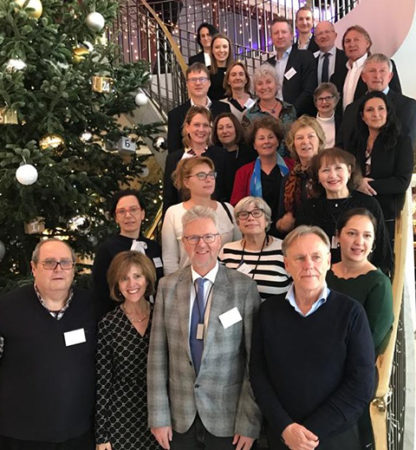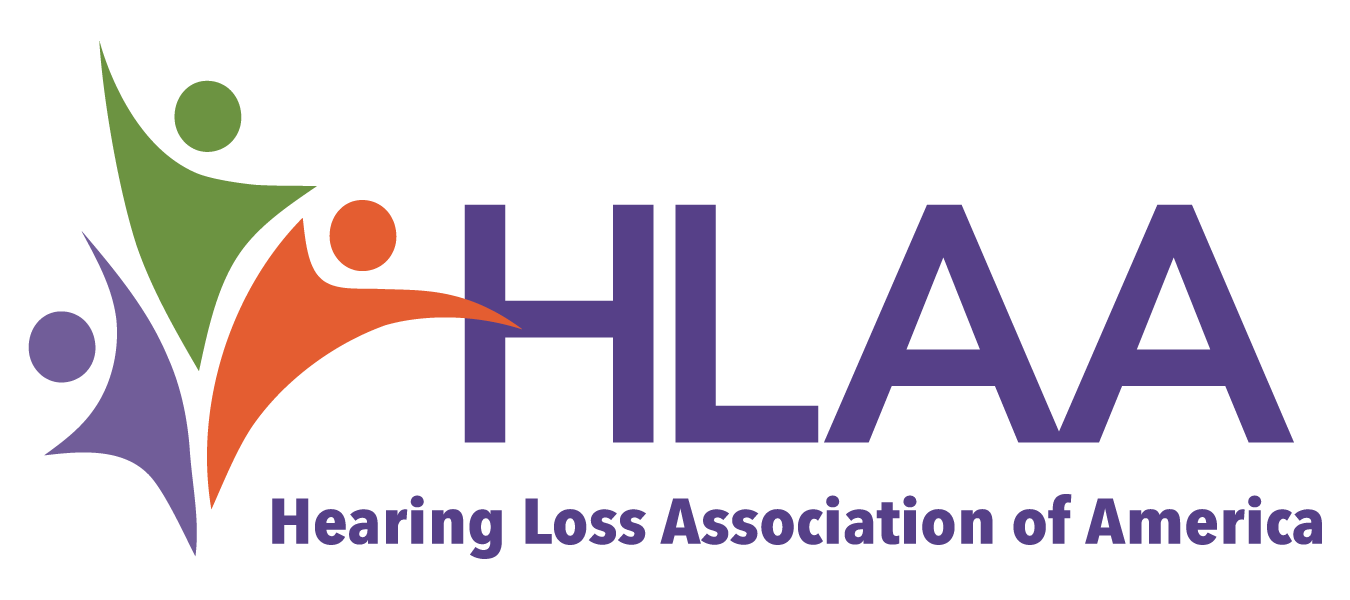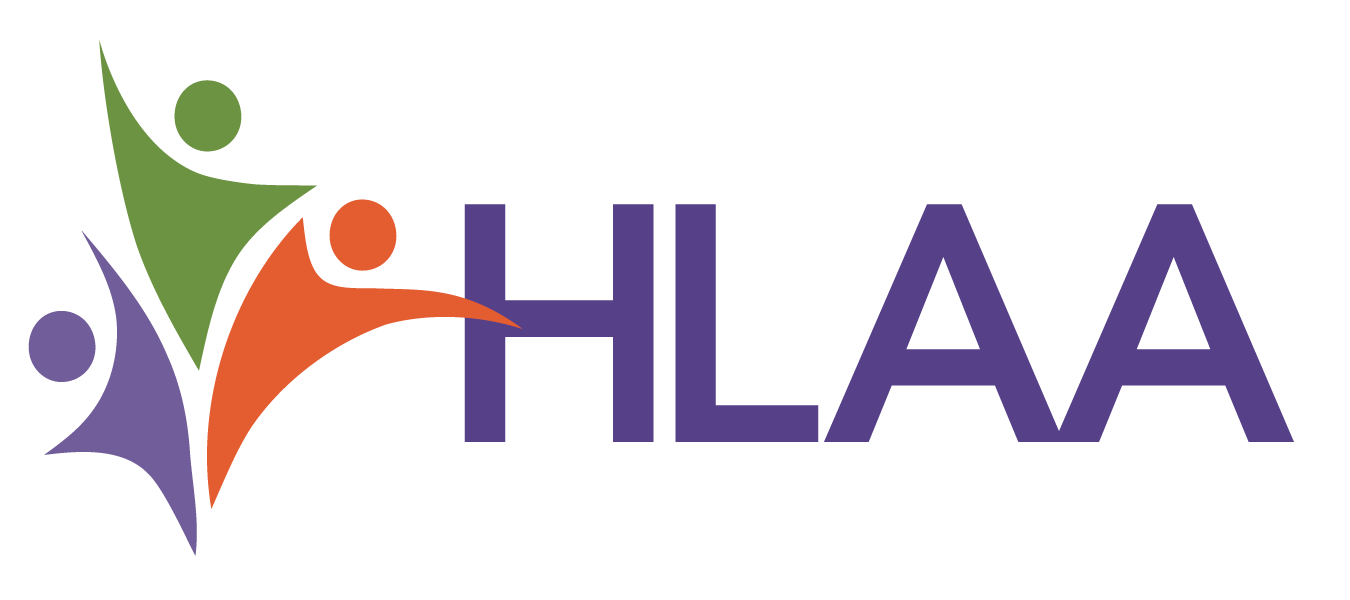GENEVA, December 6, 2019: The themes of Alliance, Advocacy, and Action for the World Health Organization’s first World Hearing Forum (December 4-5) provided inspiration for a separate meeting held on December 6 of an emerging International Cochlear Implant Advocacy Alliance with representation from hearing health professional and consumer advocacy organizations.
The meeting focused on the need to address a worldwide lack of access and awareness about the benefits of cochlear implants (CI) to treat severe to profound sensorineural hearing loss.
It is estimated that only 5% of the world’s population who could benefit from cochlear implants receive them(1) even though cochlear implants are a clinically proven cost-effective treatment for many people.
 The Alliance meeting attendees agreed that advocacy, education and awareness efforts should intensify to provide cochlear implant education to health care professionals, enabling diagnosis, and appropriate referral pathways to expert CI practitioners. The need for national adult hearing screening programs, followed by defined referral pathways to qualified CI hearing health care professionals would help millions of adults with untreated hearing loss to hearing.
The Alliance meeting attendees agreed that advocacy, education and awareness efforts should intensify to provide cochlear implant education to health care professionals, enabling diagnosis, and appropriate referral pathways to expert CI practitioners. The need for national adult hearing screening programs, followed by defined referral pathways to qualified CI hearing health care professionals would help millions of adults with untreated hearing loss to hearing.
Nineteen CI and hearing loss advocacy organizations representing more than 40 countries attended the meeting.
The Global Problem of Hearing Loss
The meeting of this new Alliance focused on cochlear implants was timely given the World Health Organization’s recognition of hearing loss as a major public health concern.
Untreated hearing loss is associated with the risk of falls, isolation, depression, anxiety and there is a correlation between hearing loss and cognitive decline.(2)
The World Health Organization (WHO) urges governments and non-state actors to respond with priority to the rising prevalence of hearing loss. The WHO estimates there are 466 million people worldwide living with disabling hearing loss and the global cost of untreated hearing loss is estimated at $750 billion annually.(3)
Adult CI Standards of Care to improve referrals pathways and treatment
A landmark International Delphi Consensus Process paper expected to be published in 2020 will help establish a minimum Standard of Care for Adult CI treatment. The paper will provide an important steppingstone to better education of health care professionals and consumers. An International Standard of Care will provide expert guidance on improved referral pathways and consistent clinical guidelines for treatment of severe to profound sensorineural hearing loss.
To ensure that cochlear implant and patient advocacy organization perspectives were considered in the Delphi Consensus Process, the Consumer and Professional Advocacy Committee (CAPAC) was formed. The Geneva meeting of the new Alliance was convened by the co-chairs of the CAPAC.
At the meeting in Geneva, international advocacy organizations and cochlear implant manufacturers came together to take a global approach to solving the problem of untreated hearing loss and the lack of beneficial referral pathways to CI treatment. Attendees also stressed the need for worldwide recognition of the benefits for reimbursement of bilateral implantation for adults, highlighting the benefits for productivity and employment, lifelong learning, social inclusion and health and well-being. The need for standards for rehabilitation and aftercare was also highlighted.
The CAPAC co-chairs and a sub-committee of new Alliance members will facilitate ongoing international collaboration on CI awareness and advocacy for hearing screening programs, better CI referral pathways, best practice treatments and stress the need for rehabilitation and aftercare.
The Alliance agreed to a wide dissemination effort of the consensus paper when it is published to include:
- people with hearing loss to empower them with information about when cochlear implants might be a treatment option for them;
- clear and accurate information for hearing health professionals including otolaryngologists, audiologists, rehabilitation teams, and primary health care practitioners about when people should be referred for evaluation for cochlear implants;
- policymakers, including politicians, commissioners and influential government agencies, who set policies and need to be informed about the clinical and cost effectiveness of cochlear implants as a treatment for severe to profound sensorineural hearing loss;
- translation into many languages with a narrative geared to various health literacy levels.
Harald Seidler, M.D. otolaryngologist, cochlear implant user, and European co-chair of the CAPAC, said, “Awareness and education about cochlear implants as a treatment option for adults with severe to profound hearing loss should receive the highest priority, so that many more people can choose to go from silence to hearing.”
Barbara Kelley, executive director of the Hearing Loss Association of America and United States co-chair of the CAPAC, said, “It was a historic day, having everyone from around the world from different disciplines deciding that together we can make a global impact in addition to what we do in our own countries. At the end of the day, it is about the person living with hearing loss who has a right to know about all treatment options, including cochlear implants, so he or she can make informed choices.”
The meeting received support from Advanced Bionics, Cochlear, MED-EL, and Oticon Medical. Experts from these companies attended the meeting.
For More Information
About the CAPAC and the International Cochlear Implant Advocacy Alliance
Barbara Kelley, Hearing Loss Association of America, United States, Bkelley@hearingloss.org
Harald Seidler, M.D., Deutschen Schwerhörigenbundes, Germany, Harald.Seidler@mediclin.de
About the anticipated consensus paper on cochlear implants
Craig Buchman, M.D., chair, steering committee of the Delphi Consensus Process on International Standards of Care for Adult Cochlear Implantation, and head of OtolaryngologyHead & Neck Surgery, Washington School of Medicine, United States, buchmanc@wustl.edu
FOOTNOTES
(1) Sorkin Cochlear implantation in the world’s largest medical device market: utilization and awareness of cochlear implants in the United States. Cochlear Implants Int 2013; 14 (Suppl 1): S4–12 or De Raeve L. Cochlear implants in Belgium: Prevalence in paediatric and adult cochlear implantation. Eur Ann Otorhinolaryngol Head Neck Dis 2016;133(Suppl 1):S57–60.
(2) Livingston G, Sommerlad A, Orgeta V et al. Dementia prevention, intervention, and care. Lancet. 2017 Dec 16;390(10113):2673-2734.
(3) Deafness and hearing loss. World Health Organization; 2018. Available at https://www.who.int/newsroom/fact-sheets/detail/deafness-and-hearing-loss


